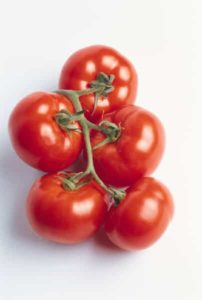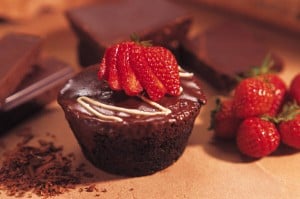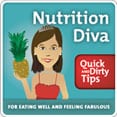 Q. I read recently that the consumption of caffeine prior to exercise will assist the body in using body fat as fuel, up from 21% to 40%. The remaining fuel comes from stored carbs. Any truth to the story?
Q. I read recently that the consumption of caffeine prior to exercise will assist the body in using body fat as fuel, up from 21% to 40%. The remaining fuel comes from stored carbs. Any truth to the story?
A. There may be a grain of truth to the story but not much more. Taking caffeine before exercise has been shown to increase energy expenditure (the number of calories burned) during exercise by around 10%. So if you would normally burn 200 calories in a half-hour, some extra caffeine might help you burn 220. Continue reading “Does Caffeine Increase Fat-Burning During Exercise?”


 Q. What’s the deal with nightshades? Why are they supposedly bad? I love eggplants and tomatoes but wonder if I should limit my consumption of this group of foods.
Q. What’s the deal with nightshades? Why are they supposedly bad? I love eggplants and tomatoes but wonder if I should limit my consumption of this group of foods. Q. I would like to hear more about ultra-pasteurization of milk. I have noticed that organic milk does not spoil as fast as non-organic milk. Is it the ultra-pasteurization? And why is organic milk ultra-pasteurized while regular milk is not?
Q. I would like to hear more about ultra-pasteurization of milk. I have noticed that organic milk does not spoil as fast as non-organic milk. Is it the ultra-pasteurization? And why is organic milk ultra-pasteurized while regular milk is not? Q. I am a healthy, active person trying to maintain my weight. About once or twice a week I will have a nice dessert at my favorite bakery, staying within my allotted calories for the day. My question is: though I’m keeping calories down, is it still healthy?
Q. I am a healthy, active person trying to maintain my weight. About once or twice a week I will have a nice dessert at my favorite bakery, staying within my allotted calories for the day. My question is: though I’m keeping calories down, is it still healthy?
 Q. Makers of coconut sugar claim that it has a low glycemic index and is high in potassium and some other minerals. Would using coconut sugar make my cookies the healthiest on the block?
Q. Makers of coconut sugar claim that it has a low glycemic index and is high in potassium and some other minerals. Would using coconut sugar make my cookies the healthiest on the block?